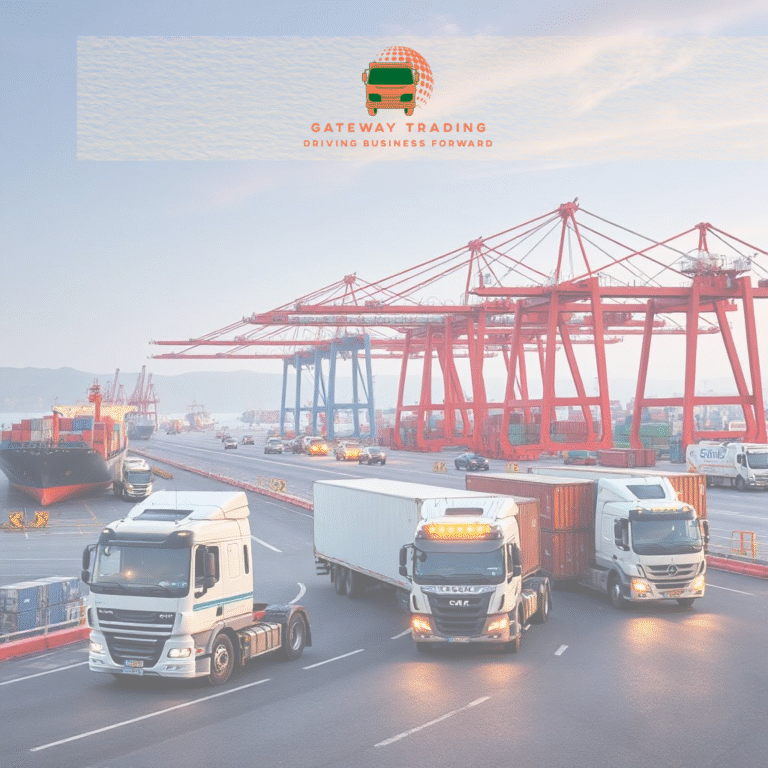Introduction:
Oman has always been a critical hub for trade and logistics in the Gulf region. In response to the evolving needs of global commerce and to enhance its economic competitiveness, the Omani government has introduced a set of new logistics laws aimed at modernizing the sector. These changes are designed to improve efficiency, streamline operations, and ensure compliance with international standards.
In this blog post, we will break down the key aspects of the new logistics laws in Oman and explain how they impact businesses in the region.
1. New Customs Procedures for Imports and Exports
One of the most significant changes in Oman’s logistics landscape is the updated customs procedures for imports and exports. The government has simplified the customs clearance process to speed up shipments and reduce bottlenecks at ports and borders.
-
Electronic Data Exchange (EDE): Oman has moved towards a more digitized system, allowing businesses to submit import/export documentation electronically. This reduces paperwork and the time required for clearance.
-
Customs Tariffs: While tariffs have remained relatively stable, there are now clearer regulations around duties, which can help businesses better estimate their logistics costs.
For more details on customs regulations, refer to the Oman Customs website here.
2. Improved Infrastructure and Transportation Regulations
Oman is investing heavily in upgrading its logistics infrastructure. New laws encourage the development of multimodal transportation networks, including road, sea, and air transport. This is expected to reduce delivery times, improve efficiency, and lower transportation costs.
-
Ports and Airports: New regulations are streamlining operations at ports like Port Sultan Qaboos and Duqm Port, which will facilitate faster movement of goods. This will allow businesses to benefit from quicker turnaround times and more reliable services.
-
Public-Private Partnerships (PPP): The Omani government is encouraging collaborations between private companies and the state to improve infrastructure. Businesses can look forward to more efficient logistics hubs and improved road networks.
For more information on Oman’s port and infrastructure development, check out Oman’s Ministry of Transport and Communications here.
3. Enhanced Compliance with International Standards
Oman is aligning its logistics laws with global standards, especially in relation to safety, security, and environmental practices. The new laws focus on:
-
Safety Regulations: Enhanced regulations require businesses to adhere to safety standards in logistics operations, ensuring the protection of both goods and employees.
-
Environmental Considerations: Oman is placing a stronger emphasis on reducing the environmental impact of logistics activities, with guidelines on sustainable practices such as reducing emissions from transportation.
These changes align with Oman’s commitment to international trade agreements and its efforts to boost the sustainability of its logistics sector.
Learn more about Oman’s trade agreements and compliance with international standards from the World Trade Organization (WTO) here.
4. New Licensing and Permits for Logistics Operators
The Omani government has introduced stricter licensing and certification requirements for logistics companies operating in the region. Companies involved in transportation, warehousing, and freight forwarding must meet certain standards to obtain or renew their licenses.
-
Compliance Inspections: The government has set up more frequent inspections to ensure companies are adhering to the new regulations.
-
Training Requirements: Logistics companies are now required to provide training for their staff on the new laws and regulations to ensure smooth and compliant operations.
For details on the licensing process, visit the Oman Chamber of Commerce and Industry (OCCI) website here.
5. Implications for Foreign Companies
Foreign logistics providers seeking to operate in Oman must now comply with the new regulations. These laws are designed to create a more transparent and regulated business environment.
-
Ownership Restrictions: While foreign companies can still operate in Oman, there may be new ownership restrictions in place for certain types of logistics services.
-
Partnerships with Local Entities: It’s advisable for foreign companies to enter into partnerships with local businesses to better navigate the regulatory landscape and gain insights into the local market.
Conclusion:
Oman’s new logistics laws are a significant step towards enhancing the efficiency and competitiveness of its logistics sector. By simplifying customs procedures, improving infrastructure, and aligning with international standards, these laws aim to make Oman a more attractive destination for both domestic and international businesses.
If your company operates in Oman or plans to expand into the region, it’s crucial to stay updated on these regulatory changes. Ensuring compliance with the new laws will not only streamline your operations but also contribute to the growth and success of your business in Oman’s evolving logistics market.
Stay ahead of the curve by contacting us.




